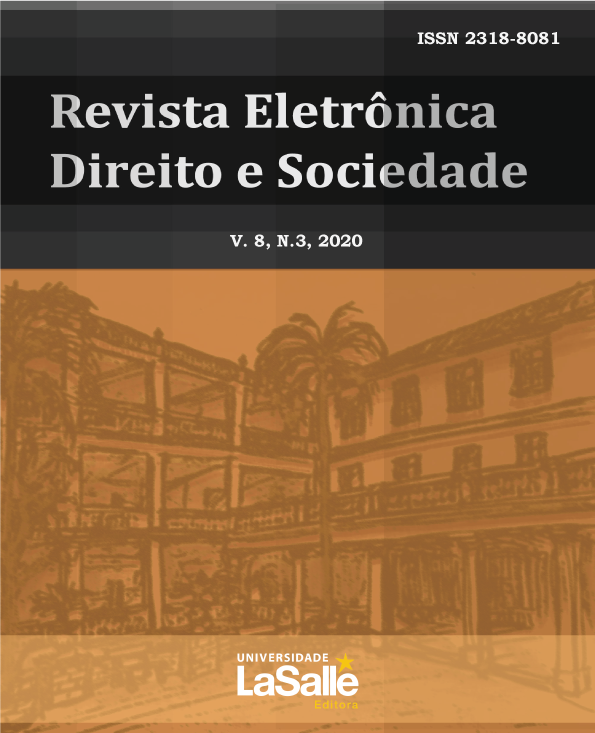Democracy and the public sphere in the digital world
DOI:
https://doi.org/10.18316/redes.v8i3.4639Keywords:
Democracy in the Information Age, Digital Division, Virtual Public Space, Information Access.Abstract
This review article aims to identify the legal challenges in the coming decades with regard to digital inclusion and the formation of a virtual public space. Thus, in this review article, inequality will be analyzed with regard to access to new communication technologies and the internet, and digital division is subdivided into: global division, social division and democratic division . In addition, the key problem is related to the feasibility of guaranteeing democracy in an unequal environment with regard to access to information available on the internet. Our bibliographic research uses the analytical method to analyze the data obtained and the arguments presented in the research. In addition, when studying the issue concerning hate speech and the invasion of privacy, it is important to highlight the use of the monographic method. Firstly, the question regarding the existing imbalance between countries in terms of internet penetration and access to information will be studied, noting that the gap between poor and rich countries can be widened if this difference intensifies. Secondly, the issue of social division will be analyzed, which concerns the imbalance in access to information and the internet within each country. The strengthening of education becomes a fundamental instrument for Brazil to overcome the social divide, since it is not enough to provide access to the internet, it is necessary to prepare citizens to benefit from the infinite information available. Democratic division becomes an extremely important challenge to constitutional justice, due to the relevance of establishing parameters for balancing freedom of expression and the invasion of privacy / hate speech. The virtual public space will only become effective when there is no digital divide, so it is necessary to strengthen and create legal instruments that guarantee democracy in an Information Age. Therefore, it was found that, in Brazil, the digital divide is a reality and affects the construction of a democratic space in the digital environment in which the discourse corresponds to citizens addressing other citizens on an equal footing.
Downloads
Published
Issue
Section
License
Authors who submit their manuscripts for publication in the “REDES” Magazine agree to the following terms:
The authors claim to be aware that they retain copyright by giving “REDES” the right to publish.
The authors declare to be aware that the work submitted will be licensed under the Creative Commons Non-Commercial Attribution License which allows article sharing with acknowledgment of authorship and publication in this journal.
The authors declare to be aware that by virtue of the articles published in this journal have free public access.
The authors declare, under the penalty of the law, that the text is unpublished and original and that they are aware that plagiarism has been identified, plagiarized authors will be informed - willingly, to take legal action in the civil and criminal sphere - and, plagiarists will have their access to the magazine blocked.
The authors state that - in case of co-authoring - all contributed significantly to the research.
Authors are obliged to provide retractions and (or) corrections of errors in case of detection.
The authors are obliged not to publish the text submitted to “REDES” in another electronic journal (or not).
The Electronic Journal Law and Society - REDES - is licensed under a Creative Commons License. Attribution-NonCommercial 4.0 International.Based on work available at "http://revistas.unilasalle.edu.br/index.php/redes/about/submissions#copyrightNotice".
Permissions in addition to those granted under this license may be available at http://creativecommons.org/.

